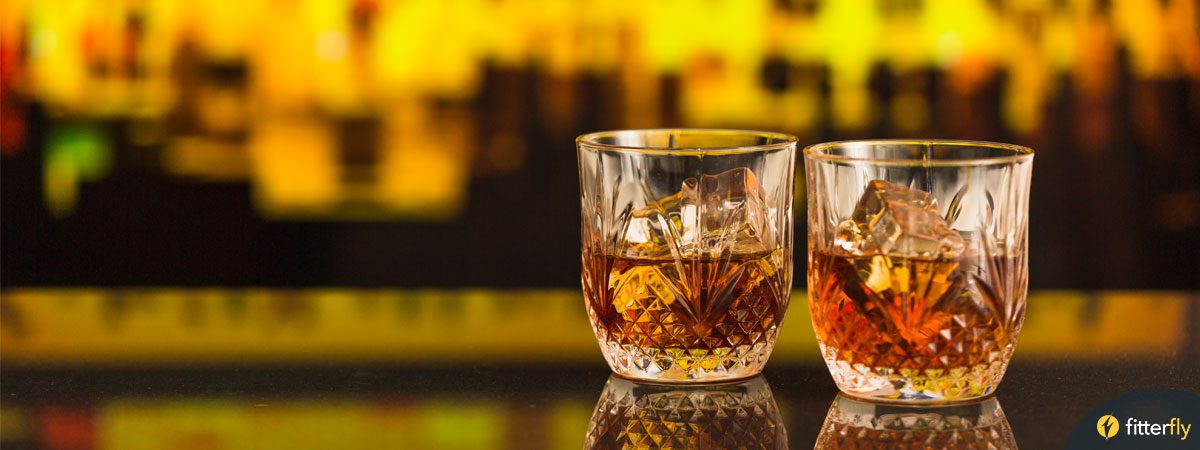Can I Drink Alcohol if I Have Diabetes?

Taking a few drinks at home, at social gatherings, or in a pub with family and friends is part of daily life for many people.
However, many of us are not sure whether drinking is safe or not if we have diabetes.

Can I drink alcohol if I have diabetes?
Yes, people with diabetes can drink alcohol but with caution. While you can still drink, you should know how it affects your blood sugars and how you should be managing it.
Here is all that you need to know about safely drinking alcohol for people with diabetes.
How does alcohol affect your blood sugar levels?
The effects of alcohol are more than just the feeling of being tipsy and a hangover. Whether you experience these symptoms or not, there’s a lot happening in your body after you have a drink.
Once consumed, it is not digested like regular food inside the body.
It directly enters your blood and reaches your brain almost instantly. It flips the brain into starvation mode and encourages overeating.
Alcohol confuses your liver. Instead of making glucose, it is converted to fat directly.
Because of this, you might find yourself eating more sugary foods as a way to compensate for reduced glucose levels. These sugary foods will then bring a spike in your blood sugar levels.
Now moving on to the other side of the coin. How can too much drinking of alcohol drop your sugar levels to its lowest low?
Does alcohol lower blood sugar?
According to the American Diabetes Association (ADA), if you drink too much i.e. more than 2 drinks per sitting your blood sugar levels will drop too low.
You could experience hypoglycemia (hypo – very low blood sugar) – which in extreme cases can be fatal.
This is more commonly seen in people who take insulin or other diabetes medicines.
When high on drinks, you may fail to notice the symptoms of hypo (e.g. sweating, trembling, difficulty in seeing and talking, etc.). If not controlled, it can put your life also at risk!
Does alcohol affect blood sugar the next day?
Word of Caution: Your blood sugar continues to drop even 24 hours after you have consumed alcohol. So don’t forget to get your blood sugar checked before going to bed at night. It should be in a safe range of 100-140mg/dL.
Alcohol is very high in calories and is stored as fat under your skin. So it increases fats and bad cholesterol in your blood. In the long run, it can cause high blood pressure or a heart problem.
The calorie content in alcohol is almost the same as fat. So weight watchers should keep a check on their intake. Or else, getting a beer belly is almost certain!
What are your safe drinking options?
Before moving on to your safe options, first and foremost, you should know what counts as one drink.
For e.g. 12 fluid ounces of beer or 5 fluid ounces of wine or 1.5 fluid ounces of hard liquor (whiskey etc.) makes 1 drink.
Which alcohol is good for diabetes?
As you can see in the table, the best options in alcoholic drinks for you are the ones with low calorie and carbohydrate (carb) content.
Table – Comparison of Different Types of Alcohol
(based on calorie content below ratings are given)
| Type of Alcohol | Carbs | Calories | Rating |
|---|---|---|---|
| Beer | |||
| 12 ounces beer (1 small can/bottle approx.) | 13g | 150 | Poor |
| 12 ounces light beer (1 small can/bottle approx.) | 6g | 100 | Satisfactory |
| Wine | |||
| 4 ounces red wine (1 small wine glass approx.) | 4g | 80 | Satisfactory |
| 4 ounces white wine (1 small wine glass approx.) | 4g | 80 | Satisfactory |
| 2 ounces port wine (half of the small glass approx.) | 7g | 90 | Satisfactory |
| Distilled Spirits | |||
| 1.5 ounces distilled spirits (Gin, Rum, Vodka, Whiskey, Scotch, dry Brandy, Cognac) (1 peg approx ~ 30 ml) | 0g | 100 | Satisfactory |
| Cocktails | |||
| 6 ounces Margarita | 29g | 205 | Worse |
| 2.5 ounces Martini | trace | 156 | Worse |
| 4.5 ounces Pina Colada | 32g | 245 | Worse |
| 5 ounces Bloody Mary | 5g | 116 | Worse |
Best alcohol for diabetes
These include light beers, wines, neat hard liquors or on the rocks or with a splash of water.
By skipping on the mixer, you are cutting on the additional carbs or empty calories.
If required, opt for sugar-free mixers for mixed drinks or cocktails. Try replacing sugary juices with diet tonic, lime juice, club soda, or seltzer. These mixers will not increase your blood sugar.
How much alcohol is safe for people with diabetes?
Limit yourself to not more than 2 drinks per day. If you are a woman, you should have not more than 1 drink per day.
What are the other things to keep in mind while drinking?
Eating and drinking – always go together
Drink slowly and never drink on an empty stomach. Always keep snacks handy to prevent hypoglycemia. You can opt for a variety of healthy and mouth-watering bites which are rich in proteins, fiber, and good fat.
To name a few, roasted chana, sprout salad with veggies, tandoor preparations like grilled chicken or grilled paneer, unsalted peanuts, or other nuts are readily available.
Besides these, you can also go for whole-grain crackers or whole-wheat pita chips with cheese, guacamole, or hummus spreads.
While choosing your snacks, avoid the ones packed with simple sugars, such as candy and cookies. They give a quick boost to your blood glucose levels, and then crash it!
Do not count liquor as part of your carb choices. Never replace your food with alcohol.
While drinking, make sure you have an ID card in hand that states your medical history of diabetes and emergency contact number.
Lastly, be a responsible person and have a designated driver!
A word from Fitterfly
Like everyone, people with diabetes can also enjoy life to the fullest with a few practical lifestyle modifications.
They can have an occasional low-sugar drink such as a mug of beer, enjoy dry wines and celebrate with champagne with their near and dear ones.
This blog provides general information for educational and informational purposes only and shouldn't be seen as professional advice.
Fitterfly's Diabetes Prime Program
clinical term for Diabetes Reversal














